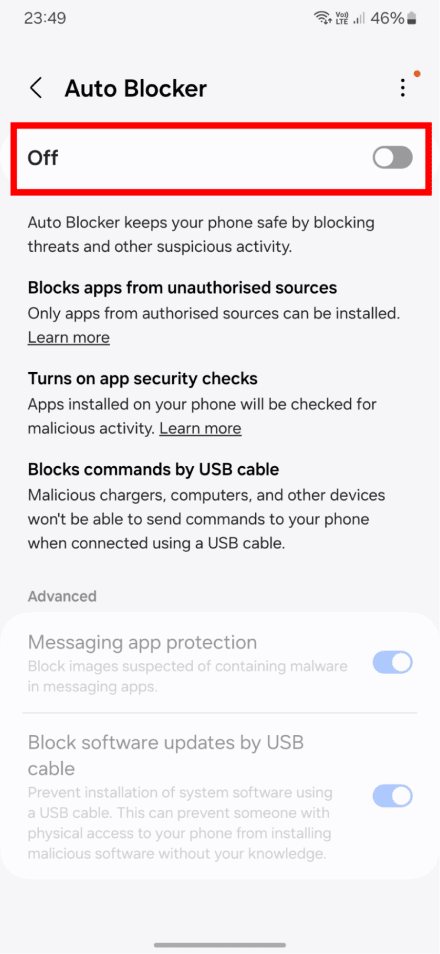

Protect your privacy with AdGuard VPN
3 GB each month
Get to know AdGuard VPN with 3 GB of free VPN traffic monthly. And if you want more, we’ll show you how.
In-house VPN protocol
AdGuard VPN’s proprietary protocol is a standout feature we’re proud of. It makes your traffic inconspicuous, maintains a reliable and fast connection, and is one of a kind.
Lists of exclusions
What if you want to use your VPN only for specific websites or even apps? AdGuard VPN has flexible exclusion lists to grant you total control over your web experience.
No-logging policy
We respect your privacy and prove it with our zero-logging policy. If we don't know what you're doing online, then nobody does.
FAQ
- Usually, when you connect your computer, smartphone, tablet, or TV to the router, it automatically assigns the device a private IP address. This allows it to communicate with other devices on the local network.Such addresses are widely used in home and corporate networks: they add security by making the traffic difficult to intercept.A private IP address cannot be used to connect to the Internet. For a device with a private IP address to access the Web, its request must go through a router that uses a public IP address.Private IP addresses are invisible to the outer world. “What is my IP” pages usually show you the IP address of your router.
- If someone knows your IP address, they can find approximately where you live, work, or travel. This makes it easier to bombard you with location-based ads.In the worst case scenario, if someone has access to the IP address history of your mobile phone, they might track your everyday commutes or habits. Fortunately, such information is difficult to access, unless you are under surveillance by the state authorities or have installed an IP-leaking app.Moreover, due to different reasons, some websites and services may get blocked for users with particular IP addresses.
- Private addresses are not globally routable and not unique across the world, so can’t be used to deliver data on the Web. As private IP addresses are restrained from accessing the Web, you need a public IP address to go online.Like postal addresses, public IP addresses are unique and can be used to deliver information anywhere.Public IP addresses are assigned to you by your ISP. In a typical home network, the router with a public IP address serves as a gateway between your devices and the Internet and manages all connections on your network on their behalf.
- Your public IP address is controlled by your ISP, so generally, it’s not always possible to change it. Sometimes, reconnecting your router might help.The perfect way to change your IP is to use a VPN. It’ll make you anonymous by hiding your real IP and replacing it with the address of a VPN server.
- IPv4 vs. IPv6 addresses are two different types of addresses that belong to different Internet addressing standards. IPv4 is an old standard, and the number of IPv4 addresses doesn’t meet people’s needs nowadays. However, the IPv4 format is widely accepted and won’t be abandoned in the near future. IPv6 is a new format that can cover many more devices but isn’t supported by some Internet providers and websites.A public IP address is a globally routable address that is used for communication between devices and websites on the Web. A private IP address can only be used in a local network.A dynamic IP address gets assigned to a device when it goes online and may change over time. A static IP address stays unchanged as long as needed.
- Your IP may be used both in positive and negative ways.On the one hand, websites may detect your location and provide you a more personalized experience on the Web — automatically select the most appropriate language, currency, or country for shipping.In addition, IP addresses are widely used to prevent card fraud. While traveling, you may notice that your bank card isn’t accepted for online purchases anymore. The likely reason is that your IP address doesn’t match the country where your card was issued.On the other hand, your IP address may be used to show you ads based on your location. Some websites may get blocked for you.
- IP addresses are usually assigned hierarchically. Users are assigned IP addresses by Internet service providers (ISPs). ISPs obtain IP address allocations from a local Internet registry, a national Internet registry, or their respective regional Internet registry.
- If you don’t want your IP address to be abused by big corporations and advertisers, use a VPN (virtual private network). VPN services effectively replace your IP address with one of their servers, making websites think you’re in another country.This drastically increases your privacy: your geolocation isn’t exposed to anyone. Besides, you can access websites, watch films and TV shows, view content, and listen to music that might be blocked for you based on your IP address.
Browse like a ninja
AdGuard VPNfor Windows
AdGuard VPNfor Mac
AdGuard VPNfor Android
AdGuard VPNfor iOS
AdGuard VPNfor Android TV

AdGuard VPNfor Chrome
AdGuard VPNfor Edge
AdGuard VPNfor Firefox
AdGuard VPNfor Opera
AdGuard VPNfor routers

AdGuard VPNfor Linux

AdGuard VPNfor Apple TV

AdGuard VPNfor Xbox

AdGuard VPNfor PS4/PS5

AdGuard VPNfor Chromecast



















